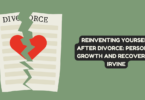
Personal Injury
Personal injury lawyers are civil claimants who symbolize clients – generally said to as claimants – asserting psychological or physical injury as an outcome of laxness or careless acts by another person, company, presence, government agency, or organization. Personal injury lawyers practice in an area noted as tort law. This area of law focuses on civic or private wrongs or injuries, monetary or nonmonetary damages. This comprises defamation and actions of worst faith or breach of contract to a person’s fame, rights, or property.
This is the major difference between general and personal injury lawyers. Being mostly specialized in the area of tort law, they have the necessary skills and knowledge to talk with clients, interview them and solve the case in favor of the injured party. No matter what kind of damage has been caused to a person, whether it’s a car accident, dog bite, home abuse, or anything else, a skillful personal injury attorney can get the highest amount of compensation. Besides all the process of claims, they are also too compassionate and help the client to recover emotionally after injury.
Personal injury lawyers have numerous duties in assisting their clients. These duties comprise both principled and professional codes of conduct and rules offered by the associations that license the lawyers. Once the state bar association licenses them to practice law, the lawyers can file complaints in court, argue cases, prepare legal documents and offer professional legal counsel to plaintiffs of personal injury.
Personal injury lawyers have the exclusive responsibility for talking to and questioning clients and evaluating their cases. They further establish the relevant issues within the client’s case and subsequently conduct the study to build a firm case. The most essential professional authorization of a personal injury lawyer is to assist clients to get the compensation and justice they justify after enduring losses and suffering. This is done through client suggestions, advocacy, legal advice, and oral arguments. The case generally heads for trial when both parties fail to reach a courteous settlement. You can also consult with NJ Personal Injury lawyers from Rosengard law group they offer free case evaluation
Personal injury lawyers are free to begin the private practice by themselves, join an average firm or choose for a large firm as an associate. They are also free to partner. The ones who go for private practice offer more individualized advantages to clients. These practitioners usually take on smaller cases and charge lower fees. In terms of numbers, small law firms usually have two to ten lawyers, average law firms have ten to fifty. Big law firms often have more than 50 lawyers.
A lawyer may offer the claimant a number of payment choices, comprising of contingency fees, flat fees, hourly rates, and retainers. The very usual option is the contingency fee. This safeguards the client because payment is fastened to the success of the case. Here the lawyer gets a percentage of the accorded amount after a successful trial or settlement. The common mark is 30 percent of the awarded amount. An hourly charge is also a usual option. This is where the claimant pays for every hour the lawyer epitomizes them. A flat fee choice is also accessible. A flat fee is paid in advance of the onset of the trial. Finally, some choices integrate all or more than one of the above choices.
Personal injury lawyers are scheduled to follow rigorous set principles of legal ethics when taking out their mandate with clients. If you are searching for the best attorney, contact a Seattle personal injury lawyer.






